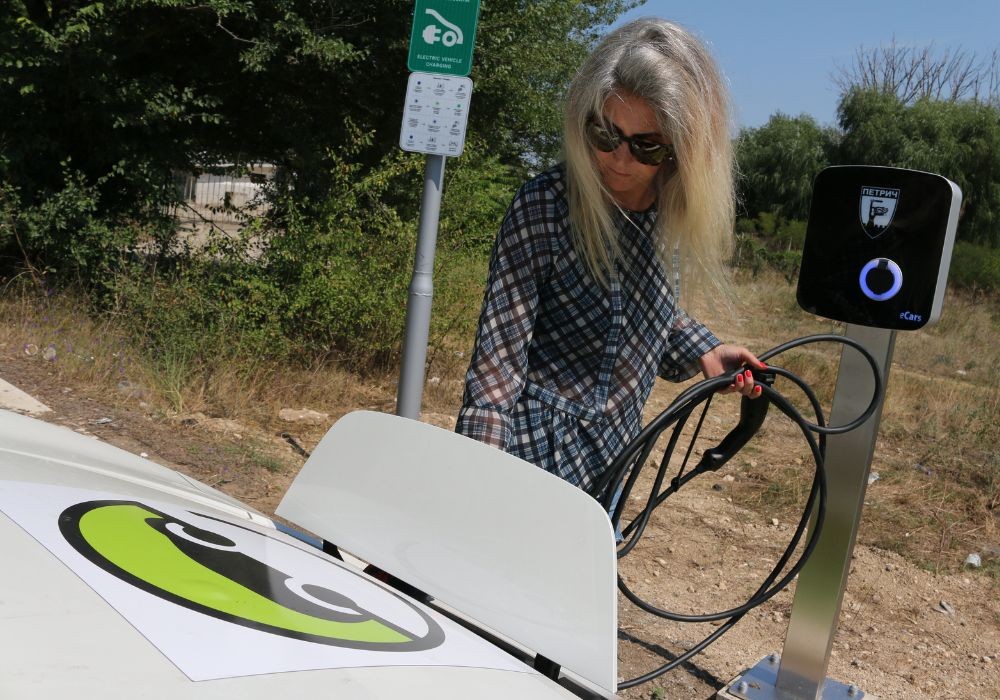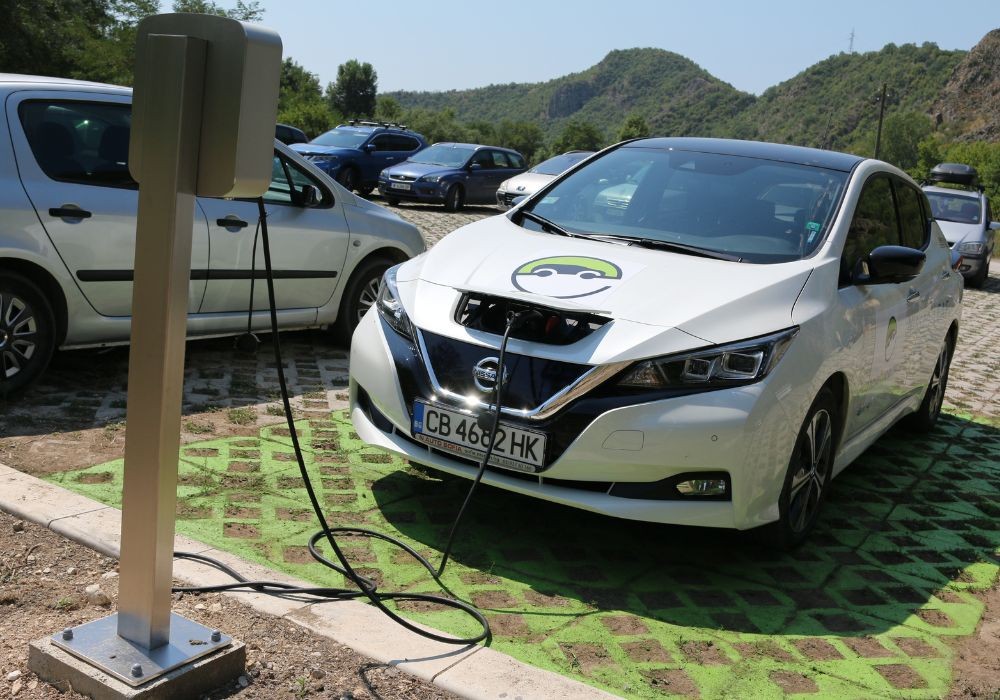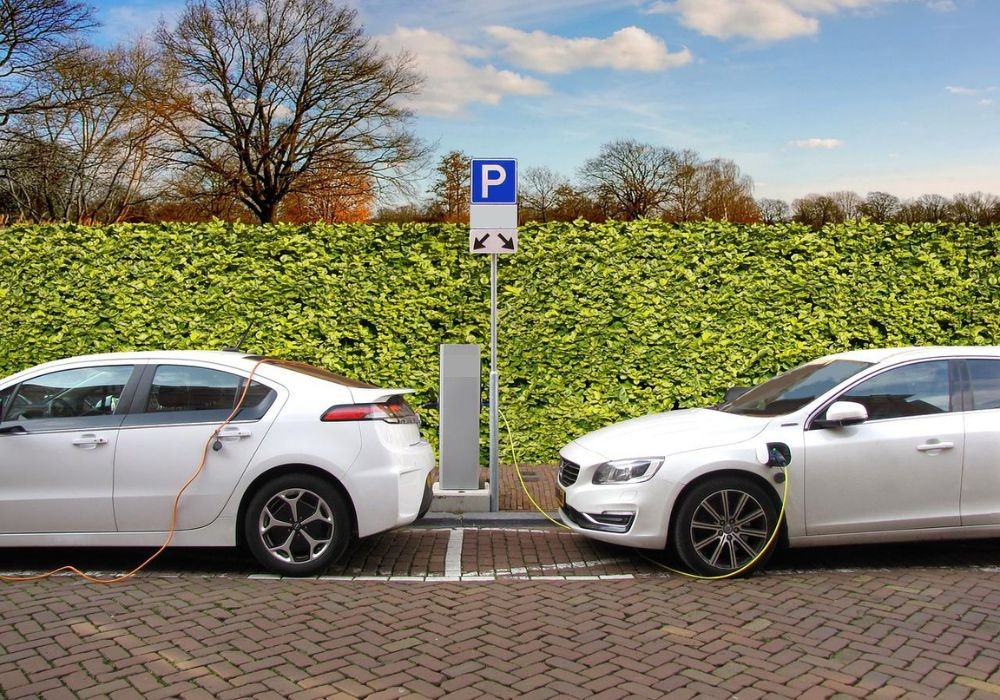The number of electric vehicles (electric bicycles, electric scooters and electric cars) in Bulgaria has increased significantly. It turned out that crossing Bulgaria with an electric car is a possible mission. The distance from the easternmost point (Cape Shabla located on the Back Sea coast) to the westernmost point (Vrashka Chuka border crossing near the town of Vidin) is 623 kilometers. You can cross the distance with one or two charges of your electric car battery. Moreover, the construction of charging stations at petrol stations and other places continues.
4,616 fully electric cars were registered in Bulgaria by the beginning of July, 2022, statistical data of the Ministry of Interior show. One year earlier, their number amounted to 2,537. Owners of such vehicles enjoy a number of benefits such as free parking in the Blue or the Green Zone, exemption from transport vehicle tax, etc. However, Bulgarians still have misgivings about the idea to give up using their conventional vehicles.

This is due to a number of reasons, including the high price of batteries and the insufficient number of charging stations on the Bulgarian roads.
Currently, the number of operational charging stations is over 600 and this is only the number of publicly accessible sites, Iliya Levkov, Chairman of the Management Board of the Electrical Vehicles Industrial Cluster, said in an interview for Radio Bulgaria.
Iliya Lavkov rebutted the view that batteries and their recycling are a potential “environmental bomb”.

“As for the batteries, their weight is not due to the amount of lithium, but to their safety systems. The battery warranty is eight years. Later, they lose 20% of their capacity, which means that they can be used for another 8 years. To date, there are at least five German and French companies which have built their own battery recycling plants.”
The lack of state policy aimed at encouraging electric mobility also hinders the purchase of electric cars in Bulgaria. This refers both to the acquisition and maintenance of electric vehicles, as well as the supporting charging infrastructure, management software, staff training, etc. Bulgaria still lacks a national strategy to manage and regulate this fast growing market. There is also a lack of accessible information regarding the location of charging stations. That is why Iliya Lavkov has come up with a specific proposal.

“The state and the Ministry of Transport and Communications must undertake measures aimed at creating a unified information system which indicates all installed charging stations, their capacity, which stations require payment and how they function. This would greatly facilitate the current and future owners of electric vehicles.”
The Electric Vehicles Industrial Cluster is part of the Sectoral Council for Electric Mobility at the Bulgarian Ministry of Education and Science established in 2019. It helped a number of professional high schools open classes in electro mobility. Additional vocational training centers for electric vehicle technicians have been also set up. In Ilya Levkov’s words, the number of students showing interest in these specialties has increased and more than 900 children study in these classes.
Written by: Yoan Kolev
English version: Kostadin Atanasov
Photos: Electrical Vehicles Industrial ClusterTwo young Bulgarian inventors have developed a solution for a job few want to do . Gregory-Leon Faurie, born in Qatar, and Martin Georgiev from Sofia are creating a robotic weeding system that uses artificial intelligence and laser technology...
The profession of a chef is becoming more and more prestigious, and people who devote themselves to it must really love it, because the hours of work are long, the workload and responsibilities are also high. The heavenly patron saint of chefs is St...
As every year, the second Sunday of August is the day on which the hunting season opens for quail, wood pigeon, turtledove and migratory game species. According to the established rules, hunting can only take place during the day, one hour before..
The profession of a chef is becoming more and more prestigious, and people who devote themselves to it must really love it, because the hours of work are..
Two young Bulgarian inventors have developed a solution for a job few want to do . Gregory-Leon Faurie, born in Qatar, and Martin Georgiev from..

+359 2 9336 661
